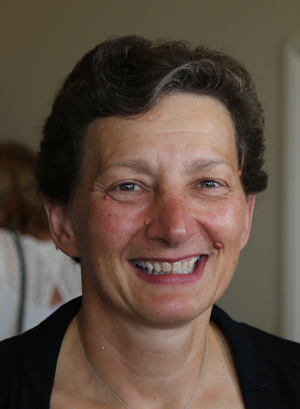-
-
- Council Members
- Role of Council Members
- Council meetings
- Council elections
- Previous election results
- Dr Louise Allum
- Dr Sam Bescoby
- Dr Andrew Clemence
- Dr Tshidi Gardiner
- Dr Reginald Godwin
- Paddy Gordon
- Dr Danielle Greenberg
- Dr Gerard Henry
- Dr Richard Hillman
- Dr Benjamin Kennedy
- Dr Tom Lonsdale
- Dr Darren Partridge
- Martin Peaty
- Alison Price
- Dr Peter Robinson
- Dr Jennifer Simmons
- Dr Sadie Spencer
- Dr Mary Thomas
- William Wilkinson
- Dr Lara Wilson
- Past-Presidents
-
-
-
-
-
- About extra-mural studies (EMS)
- EMS requirements
- Information for vet students
- Information for EMS providers
- Information for vet schools
- Temporary EMS requirements
- Practice by students - regulations
- Health and safety on EMS placements
- EMS contacts and further guidance
- Extra-mural studies fit for the future
-
-
- Code of Professional Conduct for Veterinary Surgeons
- Code of Professional Conduct for Veterinary Nurses
- Contact the Advice Team
- XL Bully dog ban
- 'Under care' - guidance
- Advice on Schedule 3
- Controlled Drugs Guidance – A to Z
- Dealing with Difficult Situations webinar recordings
- FAQs – Common medicines pitfalls
- FAQs – Routine veterinary practice and clinical veterinary research
- FAQs – Advertising of practice names
- GDPR – RCVS information and Q&As
RCVS publishes Workforce Action Plan setting out how the sector can work together to mitigate crisis
11 November 2022
The RCVS has published its Workforce Action Plan setting out the key areas in which the veterinary sector, including representative organisations, employers, charities and other stakeholder groups, can work together to mitigate the impact of the ongoing workforce shortages in the professions.
Via its seven ambitions, the Action Plan presents what the College is doing to tackle the issue and details how collaboration, culture change, career development and leadership, among other things, could help with workforce shortages by improving retention of current members of the professions, encouraging more people to join, and making it easier for those who have left the professions to return.
The seven ambitions – with a selection of some of their key actions - are:
- Shape leaders at all levels: this includes promoting inclusive everyday leadership; ensuring equality, diversity and inclusion considerations are embedded at all career stages; and launching more opportunities for free and accessible learning resources.
- Confidence, culture and recognition: this includes ensuring that there’s a welcoming and supportive environment for the whole veterinary team; and continuing to deliver to raise awareness and signpost mental health support.
- Greater responsibility for veterinary nurses: this includes demonstrating the capabilities of the veterinary nursing role; ensuring clear career pathways for veterinary nurses; and continuing to progress the need for legislative change which would see veterinary nurses gain more autonomy and responsibility.
- Welcoming a modern way of working: this includes promoting return-to-work support for both clinical and non-clinical veterinary roles; continuing to strengthen relations between the UK and overseas regulators and representative bodies; and encouraging the use of innovation and technology to tackle some of the sector’s major challenges.
- General practice – a chosen pathway: this includes encouraging confidence in pursuing a career in general practice and the opportunities it offers; encouraging shared training where appropriate between vets and vet nurses at undergraduate level; and learn and model against other professions, such as the medical profession.
- An attractive career for everyone, including those who’ve left: this includes continuing to promote direct RCVS accreditation of overseas veterinary degrees; launching an Extra-Mural Studies (EMS) policy that leads to a more consistent high-quality experience for students and providers; and ensuring employers understand the re-entry process, and the importance of welcoming people back after career breaks.
- Improving client interaction and communication: this includes elevating and driving the status of communication and other interpersonal skills in the professions; and developing clearer and more easily accessible explanations of the veterinary role and the scope of vet and vet nurse roles to the general public.
The full list of actions, with context about what has fed into ambitions, can be found in the Action Plan which is downloadable from our Publications page.
Throughout the document there are references to how both the RCVS and partner organisations, including the British Veterinary Association (BVA) and British Veterinary Nursing Association (BVNA) and other organisations and employers, are already working to fulfil many of the actions it sets out.
 Dr Melissa Donald MRCVS (pictured), RCVS President, said: “We made clear from the outset that there was no one organisation or one big red button to push that would solve the problem, that it would take imagination, trial, grit and, most importantly, positive and constructive collaboration between all those in a position to make a difference to the situation.
Dr Melissa Donald MRCVS (pictured), RCVS President, said: “We made clear from the outset that there was no one organisation or one big red button to push that would solve the problem, that it would take imagination, trial, grit and, most importantly, positive and constructive collaboration between all those in a position to make a difference to the situation.
“Our Action Plan reflects this, it is a list of ambitions and actions that organisations and charities and companies can look at and, where actions are relevant and achievable, take on board and implement in order to approve retention and outcomes.
“Of course, organisations like the RCVS can play a major role in this area, and this is why we have included activities we are undertaking such as reform of the EMS system, making the Veterinary Graduate Development Programme available for those returning to veterinary work after a long absence, and the development of resources that can make ‘quality of life’ improvements for the professions such as Mind Matters, the RCVS Academy and the RCVS Leadership project.”
 Dr Sue Paterson FRCVS (pictured), Junior Vice-President and Chair of the RCVS Advancement of the Professions Committee, added: “This is a very complex, broad and multi-faceted area of concern so the Action Plan has been a long time in the making to ensure that we adequately capture what needs doing and how, in order to enable us to work collaboratively with all veterinary organisations going forward. This is not a finished list, but gives all within the veterinary sector the ability to look at the key areas of work that need to be done and prioritise the ones that most suit their organisational needs.
Dr Sue Paterson FRCVS (pictured), Junior Vice-President and Chair of the RCVS Advancement of the Professions Committee, added: “This is a very complex, broad and multi-faceted area of concern so the Action Plan has been a long time in the making to ensure that we adequately capture what needs doing and how, in order to enable us to work collaboratively with all veterinary organisations going forward. This is not a finished list, but gives all within the veterinary sector the ability to look at the key areas of work that need to be done and prioritise the ones that most suit their organisational needs.
“I would like to thank all those organisations who have contributed to this project from its very outset, including attending the Workforce Summit in November 2021, those who provided thoughtful and constructive feedback following the publication of the summit’s summary report and those who contributed information about what they are already doing in this area for the Action Plan.
“Furthermore, this is by no means the end of the project however, we will continue to review the actions in terms of what has been successful, what can be improved and where we can collaborate. In 2023 we will also be holding a series of online interactive events for members of the professions, and those who work in veterinary organisations, looking at each ambition in more detail so that the conversation and planning can develop around how they embed the actions in their own workplaces.”
The full report can be downloaded from our Publications page.